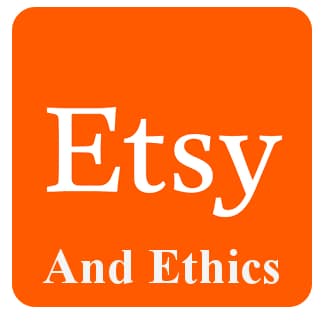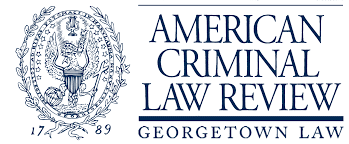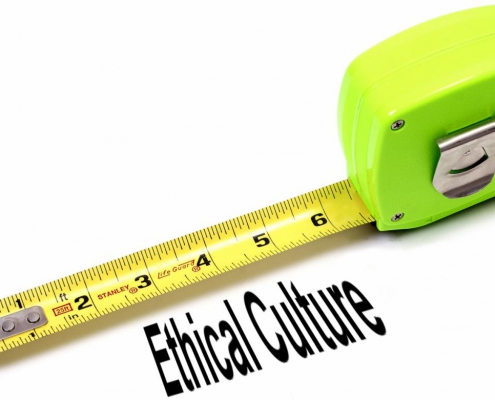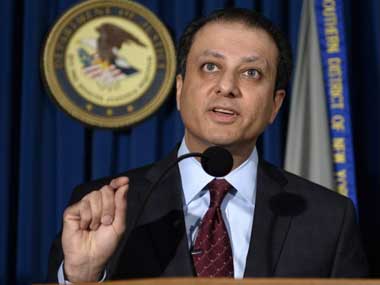Tag Archive for: Culture

Featured Ethics Scholar for December: Dennis Gentilin
BlogInterview with Dennis Gentilin, Whistleblower, Author and Consultant on Corporate Citizenship
 What are your main areas of research/work?
What are your main areas of research/work?
Let me begin by stating that I don’t see myself as a scholar (at least not formally). However I do see enormous value in using the findings and tools from the social and behavioral sciences to help address the ethical challenges facing the business world. This is one of the many reasons I am a big advocate of Ethical Systems.
As one would expect given my experience and background (outlined below), my primary area of interest is employee voice and speak up cultures. What my experience showed me is that even the best “formal systems” (rules, regulations, compliance and other such artifacts) have shortcomings. The best (and arguably the only) way to overcome these is to nurture the “human systems” within organizations. A speak up culture is a core component of this latter system.

Corporate Scandal, Reputation Risks and Common Sense
Blog When corporate scandal occurs- whether it makes headlines or not- there is a tendency to blame bad apples instead of examining the organizational culture to identify areas in need of further improvement or oversight.
When corporate scandal occurs- whether it makes headlines or not- there is a tendency to blame bad apples instead of examining the organizational culture to identify areas in need of further improvement or oversight.
In a recent piece in The Wall Street Journal, Lou Gerstner, a former chairman and CEO of IBM and RJR Nabisco, now chairman of the board of directors at the Broad Institute of MIT and Harvard, outlines why there is continued misunderstanding around culture and the various ways companies undercut their own efforts to strengthen it.

ETSY: A Positive Culture of Negative Confessions
Blog What happens when people make a mistake at work? That depends on the culture of the organization- covering it up or passing the buck are options when competition drives behavior or if there is a low trust environment. But at Etsy, employees are not only asked to own up to their errors but reveal them to the entire company.
What happens when people make a mistake at work? That depends on the culture of the organization- covering it up or passing the buck are options when competition drives behavior or if there is a low trust environment. But at Etsy, employees are not only asked to own up to their errors but reveal them to the entire company.
In a recent piece on Quartz, Etsy CEO Chad Dickerson revealed that people at the company are encouraged to document their mistakes, how they happened and what they learned from it, in public emails. The company “also gives out an annual award—a real three-armed sweater— to whomever who made the most surprising error, not the worst one, as a reminder to examine the gap between how things are expected to happen and how they actually do.”

Cultures of Compliance with Donald C. Langevoort
Blog Donald Langevoort, Thomas Aquinas Reynolds Professor of Law at Georgetown Law has provided a copy of an article written for the American Criminal Law Review in which he deftly outlines a series of acute observations drawn from different social sciences—economics, psychology, sociology and anthropology—about cultures of compliance and noncompliance.
Donald Langevoort, Thomas Aquinas Reynolds Professor of Law at Georgetown Law has provided a copy of an article written for the American Criminal Law Review in which he deftly outlines a series of acute observations drawn from different social sciences—economics, psychology, sociology and anthropology—about cultures of compliance and noncompliance.
The abstract:
In the last few years especially, law-makers have increasingly invoked culture as something crucial to good compliance. The phrase “culture of compliance” has thus made its way into common legal discourse as describing both a goal and a marker. Precisely they mean by this is contestable, but there is enough evidence that the demand for healthy compliance culture is serious to invite careful thought. What is it, or should it be, and how might we know? This article draws from organizational behavior, behavioral ethics, and financial economics to develop an approach to how and why corporate cultures resist naively appealing interventions of “tone at the top” and ethical exhortation.

Measuring Ethical Culture: Tips and Tools
Blog As any Compliance Officer knows well, demonstrating that your company has an effective compliance program is one of the main goals of your day-to-day efforts, but also one of the most elusive. The Federal Sentencing Guidelines are designed to incentivize businesses to implement ethics and compliance programs by rewarding companies through reduced sanctions- if they can demonstrate that they have an effective compliance program. The broad goal for most companies is to demonstrate, in the face of an investigation or finding of illegal actions, that the act was caused by a rogue employee and not because of how the company inherently conducts its business.
As any Compliance Officer knows well, demonstrating that your company has an effective compliance program is one of the main goals of your day-to-day efforts, but also one of the most elusive. The Federal Sentencing Guidelines are designed to incentivize businesses to implement ethics and compliance programs by rewarding companies through reduced sanctions- if they can demonstrate that they have an effective compliance program. The broad goal for most companies is to demonstrate, in the face of an investigation or finding of illegal actions, that the act was caused by a rogue employee and not because of how the company inherently conducts its business.
Yet, we all know that in practice demonstrating effectiveness of a compliance program is rife with gray areas, cynicism and challenges.

Combating a Culture of Minimalism with Preet Bharara
Blog What does it mean to have an organizational culture of minimalism? On the surface, it results in doing only the bare minimum to avoid punishment from internal or external groups. The more insidious implications means that both shareholders and stakeholders end up disillusioned and disconnected after prolonged exposure to the ennui and modicum of expended energy in actually making positive change.
What does it mean to have an organizational culture of minimalism? On the surface, it results in doing only the bare minimum to avoid punishment from internal or external groups. The more insidious implications means that both shareholders and stakeholders end up disillusioned and disconnected after prolonged exposure to the ennui and modicum of expended energy in actually making positive change.
In a recent talk by U.S. Attorney Preet Bharara as part of NYU Stern Business and Society Program’s Sani Lecture Series, he identified cultures of minimalism as a trending, troubling development in today’s business world. And this is, without doubt, extremely vexing for business leaders, investors, academics and advocates.

The Global Ethics Summit: Culture at the forefront
Blog Last week, I had the pleasure to attend The Global Ethics Summit, put on by The Ethisphere Institute. The event brought together over 400 people with broad perspectives on managing ethics within organizations, including ethical culture, encouraging speak-up culture, and best practices for Board management.
Last week, I had the pleasure to attend The Global Ethics Summit, put on by The Ethisphere Institute. The event brought together over 400 people with broad perspectives on managing ethics within organizations, including ethical culture, encouraging speak-up culture, and best practices for Board management.
At the plenary on company culture, it was instructive to hear strategies companies are using to address one specific challenge – how do you use the lever of values to change behavior and outcomes in organizations? For us at Ethical Systems, this panel was particularly important because we recognize that creating and maintaining ethical culture within an organization is key to supporting everyday ethical behavior.
Professionalism and Ethical Leadership From General Counsel’s Suite
Blog![]() Among the active debate among compliance professionals, lawyers, and commentators about the proper role of compliance within a corporate hierarchy, there is an emerging consensus that lawyers have become the “loophole finders” and that compliance must step in to protect the firm’s integrity and ethics.
Among the active debate among compliance professionals, lawyers, and commentators about the proper role of compliance within a corporate hierarchy, there is an emerging consensus that lawyers have become the “loophole finders” and that compliance must step in to protect the firm’s integrity and ethics.
Azish Filabi, CEO of Ethical Systems and Jim Lager, ES collaborator, have written a piece for Corporate Counsel that addresses this ongoing conversation. Read the piece on "Professionalism and Ethical Leadership From General Counsel’s Suite." >>

Feeling All The Feels: The value of emotional culture at work
Blog You catch more flies with honey than you do with vinegar, says an old adage. In today’s economy, companies would be wise to continuously tend to their hives in order to maximize and motivate their worker bees.
You catch more flies with honey than you do with vinegar, says an old adage. In today’s economy, companies would be wise to continuously tend to their hives in order to maximize and motivate their worker bees.
A recent study published in Harvard Business Review examined the importance and benefits of fostering an “emotional culture” at work and its findings reinforce much of the buzz within behavioral and organizational psychology: that employees thrive in environments where joy, love and fun are the predominant cultures, as opposed to anger, fear and hostility.

Your Permanent Record: Blacklist for ethics gaining steam
Blog Bad ethics should not be forgotten in the new year- or any other- as bankers and regulators discussed creating an ethical blacklist for individuals working at regulated financial institutions, at the NY Federal Reserve‘s recent culture conference.
Bad ethics should not be forgotten in the new year- or any other- as bankers and regulators discussed creating an ethical blacklist for individuals working at regulated financial institutions, at the NY Federal Reserve‘s recent culture conference.
This signals new enthusiasm for a provocative proposal originally suggested in 2014 by Bill Dudley, President of the NY Fed: When an employee leaves a company, the organization would have a mandate to report information relating to his/her misconduct to a central database. Concerning hiring decisions, all firms would have a reciprocal duty to check the database against their potential hire list. The goal is to stem the tide of bad apples that bounce from firm-to-firm, negatively influencing stability, profits and planning.
